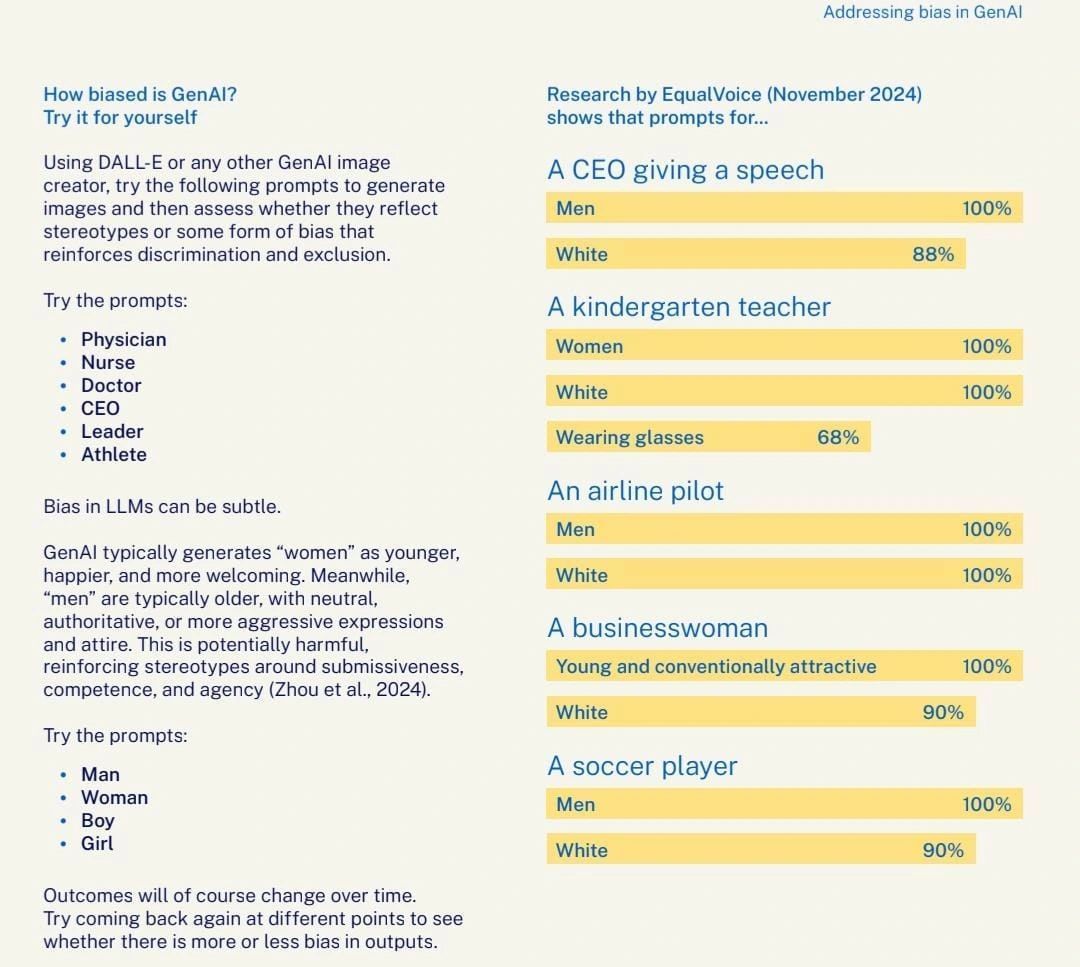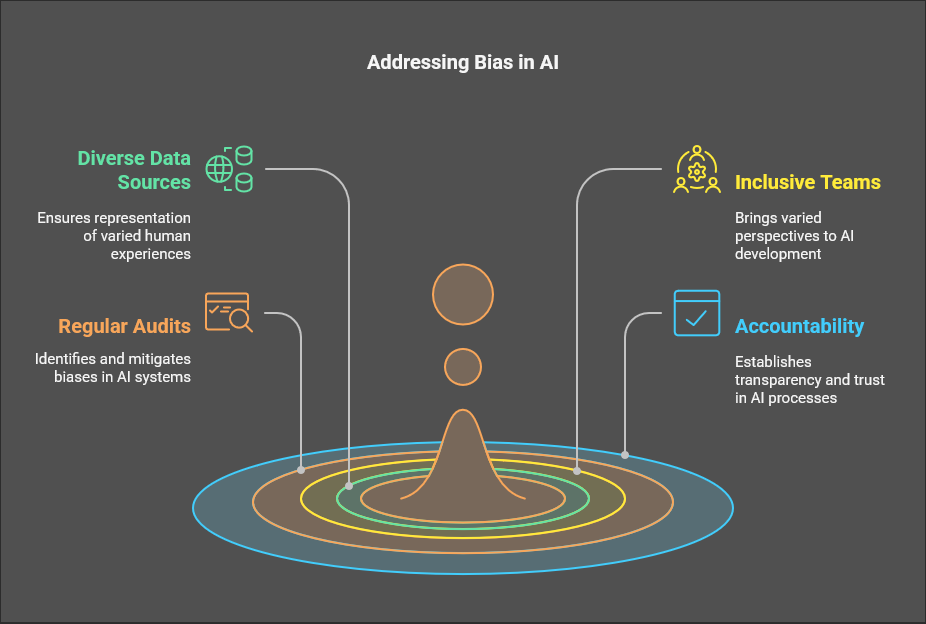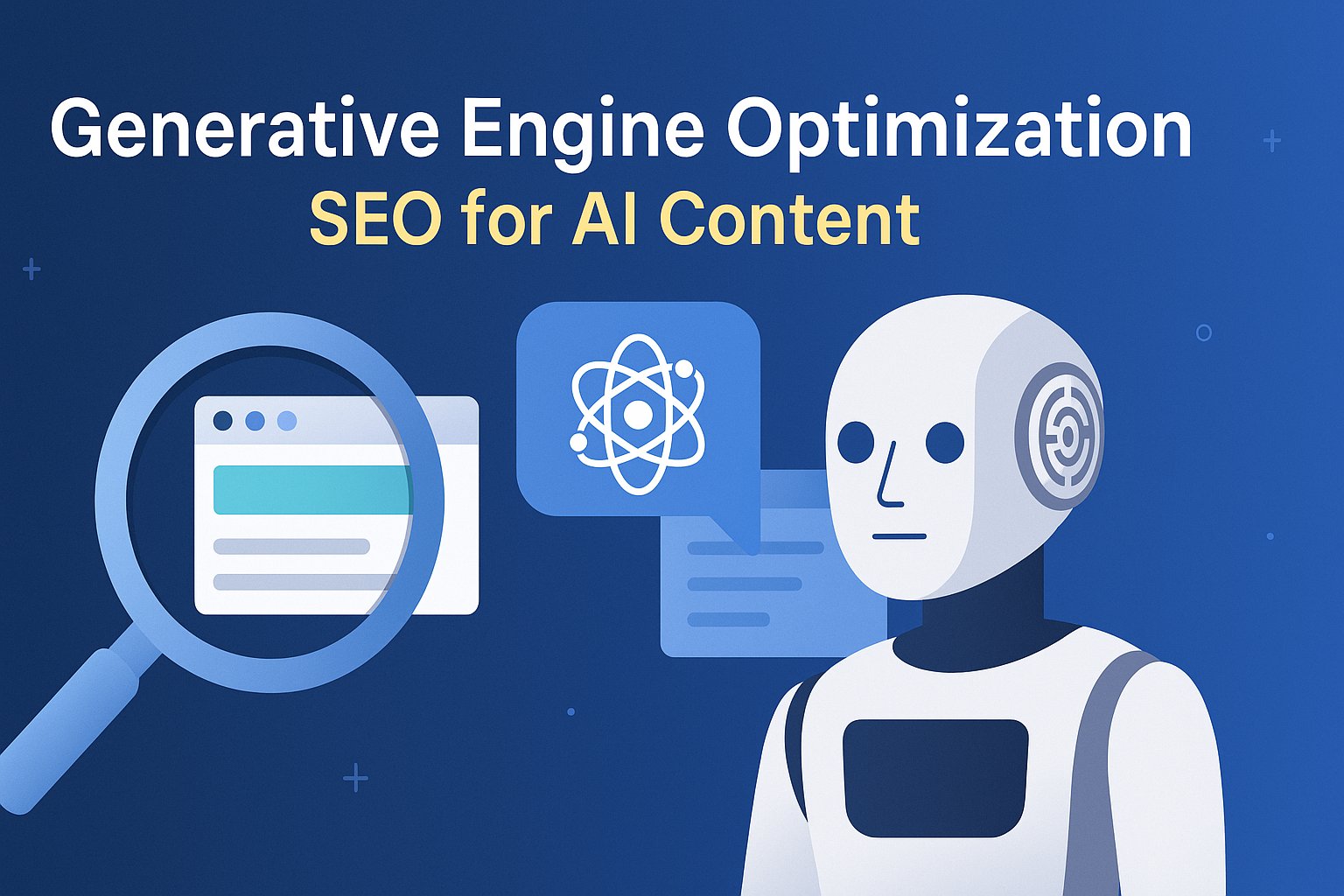Bias in AI: A Call for Change
Artificial Intelligence (AI) holds immense potential to transform industries, from healthcare and finance to education and governance. However, as this technology becomes more integral to our daily lives, it’s crucial to address a pressing issue:
bias in AI systems.
How Deep Is The Problem?
Most AI systems today are inherently biased. This bias originates from the data these systems are trained on—data that often mirrors societal stereotypes, historical inequalities, and unbalanced representation. A study by EqualVoice (November 2024) demonstrated this starkly, revealing how AI-generated images for prompts like “CEO giving a speech” or “airline pilot” overwhelmingly favored white men. Similarly, when generating images for a “kindergarten teacher,” the AI consistently depicted women.
Such biases aren't just cosmetic—they have real-world implications. They influence how AI systems make decisions in areas like hiring, healthcare, justice, and financial services, perpetuating inequality if left unchecked.
Why Bias in AI Matters

If we build AI systems on flawed foundations, these biases will persist, influencing major decisions and perpetuating stereotypes. Imagine AI systems making hiring decisions that consistently favor certain demographics or healthcare algorithms that overlook specific needs based on gender or race.
The challenge is clear: AI must reflect the diversity and complexity of human society, not amplify existing disparities.
Steps Toward a More Equitable AI Future
So, how can we bring about change? Here are four key areas to focus on:
1. Diverse Data Sources
AI models must be trained on datasets that accurately represent the full spectrum of human experiences and cultures. This approach helps minimize biases from the start by ensuring a more balanced training environment.
2. Inclusive Development Teams
AI development teams need to include diverse voices, backgrounds, and perspectives. Notably, the majority of AI startups, as well as big tech companies, are led by male founders. Integrating varied viewpoints is crucial to identifying and addressing biases that homogeneous teams might overlook.
3. Regular Bias Audits
AI systems should undergo regular testing to identify and mitigate unintended biases. By proactively addressing these issues, companies can ensure their models are fairer and more reliable.
4. Accountability and Transparency
Establishing ethical guidelines and frameworks for AI development is essential. AI systems should be transparent in their decision-making processes, with clear mechanisms for accountability when biases are identified.

The Way Forward: AI for Good
AI has the power to uplift humanity, but achieving this goal requires deliberate action. At aiSuite, we believe in creating AI solutions that are not only efficient but also equitable. By implementing strategies to reduce bias, we can build systems that serve all people, regardless of race, gender, or background.
Ready to build trust in your AI processes?
Explore how aiSuite can help your business today.





